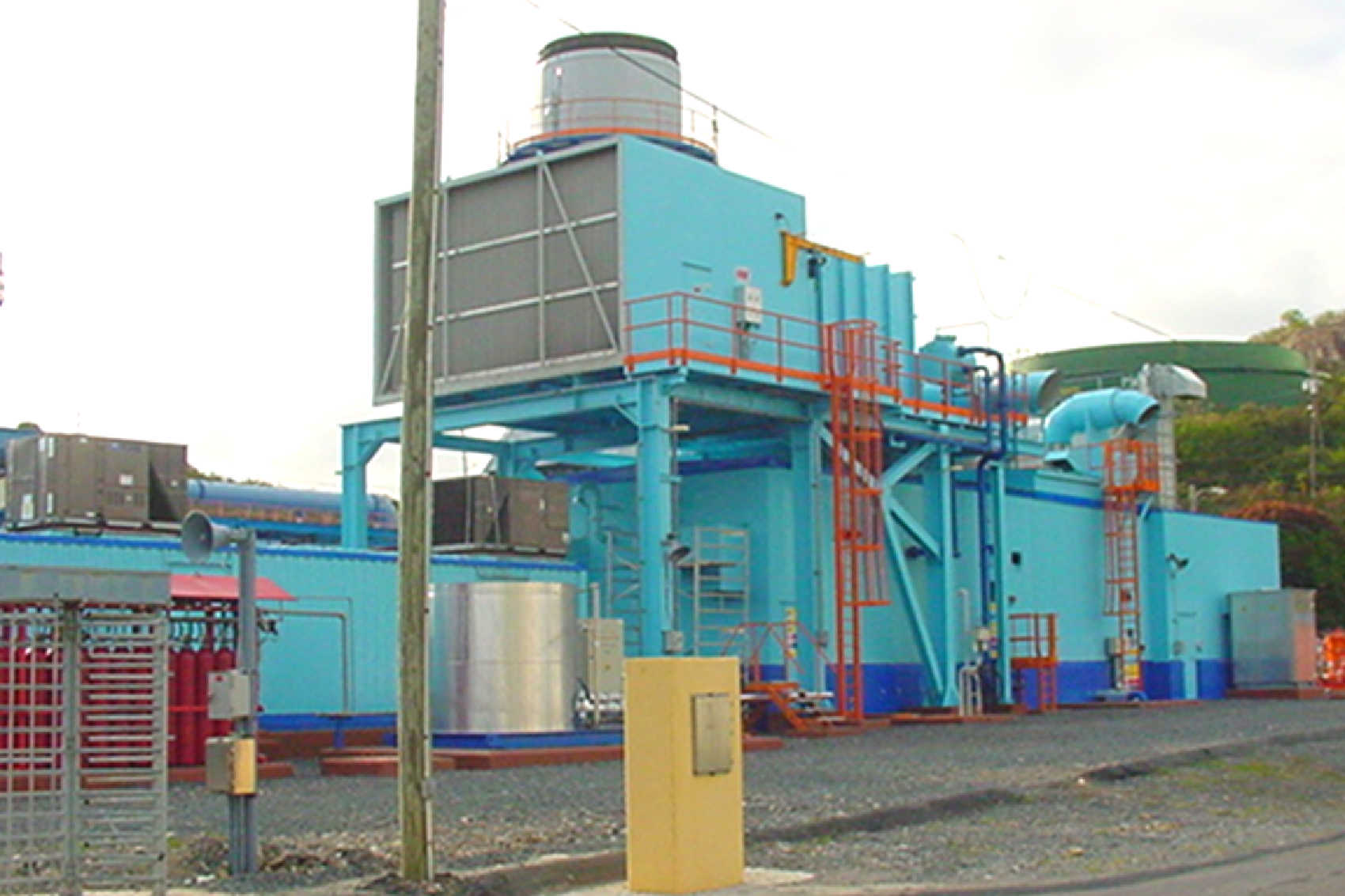WAPA
WAPA’s Commitment to Revitalizing Power Infrastructure in the St. Thomas-St. John District

The Virgin Islands Water and Power Authority (WAPA) has acknowledged ongoing power disruptions in the St. Thomas-St. John district, attributing the issues to aging and damaged systems. These challenges have been particularly pronounced since September 2023, with the district experiencing frequent outages, including one that lasted nearly half a day.
The root of these disruptions traces back to excavation work in September, which necessitated week-long outage rotations to facilitate repairs. Weather-related incidents and underground system repairs further compounded the problem in the following months. A notable incident occurred at the Donald Francois substation in November, where infrastructure strain led to a significant failure. Ashley Byran, WAPA’s Chief Operating Officer of Electric, cited the lingering effects of the 2017 hurricanes on the electric distribution infrastructure, particularly impacting three major transmission lines and leading to repeated failures at the Donald Francois substation.
Ms. Byran explained that the current infrastructure was originally designed to allow two transmission lines to support the third. However, with only two lines operational, this setup proved insufficient to meet the district’s power demands, resulting in rotational outages.
In response, WAPA is actively pursuing solutions. The Federal Emergency Management Agency (FEMA) is expected to fund key mitigation projects, focusing on specific repairs and replacements. Ms. Byran detailed WAPA’s plans, including the emergency construction of an overhead composite pole transmission system and replacing damaged underground sections. These initiatives are anticipated to enhance service reliability and overall quality of life, addressing concerns such as the negative impact of power outages on tourism.
Looking ahead, WAPA anticipates beginning substantial foundational work in the coming months. Ms. Bryan emphasized the critical role of the Wärtsilä system, which, once fully operational, is expected to significantly reduce the likelihood of prolonged blackouts. Challenges in shipping have delayed the full commissioning of these state-of-the-art generators.
WAPA is committed to preventing future outages, developing new standard operating procedures for underground troubleshooting, and designing training programs for staff. These efforts aim to enhance their capability in identifying and addressing various faults, ultimately contributing to a more resilient and reliable power system for the St. Thomas-St. John district.
WAPA
Restoration Achieved: WAPA Unit 23 Back Online, Rotational Outages End in STT/STJ

The Virgin Islands Water & Power Authority (WAPA) announced late Wednesday that Unit 23, which had been out of service and causing rotational outages across the St. Thomas and St. John (STT/STJ) district, is now operational following successful repairs. This development has brought an end to the recent schedule of rotational outages in the area.
The restoration of Unit 23 was made possible by the dedicated efforts of WAPA’s plant personnel, who managed to install a replacement transducer, thereby restoring the unit to full functionality. This repair marks a significant step towards stabilizing the power supply for residents and businesses that have been adversely affected by the outages.
WAPA expressed gratitude to the community for their patience during this challenging period, acknowledging the hardships and inconveniences caused by the power interruptions. The authority highlighted that their team, made up of local community members who were also impacted by the outages, worked with diligence and urgency to ensure the repairs were carried out safely and efficiently.
“We want to emphasize that the WAPA team is comprised of community members who were also impacted by these outages,” the statement read. “This process was not taken lightly, and we worked with great urgency while also safely conducting repairs.”
This announcement follows WAPA’s recent successful repairs to Feeder 13, which resolved issues stemming from a damaged underground cable.
WAPA
WAPA Completes Feeder 13 Repairs; Rotational Outages Persist Due to Offline Unit 23

The V.I. Water and Power Authority (WAPA) has successfully repaired Feeder 13, resolving issues from a damaged underground cable. This extensive repair effort, completed last Friday evening, has brought relief to numerous customers in the St. Thomas-St. John district.
Despite this progress, challenges remain as Unit 23 is still offline, necessitating ongoing rotational power outages. These outages affect various feeders, contributing to the region’s power instability.
The Feeder 13 repair involved WAPA’s line department, transmission, and distribution teams, along with contractors Haugland VI and F&R Electric. They conducted a meticulous inspection and testing of the approximately five-mile-long cable, including a two-mile underground segment with 29 manholes. This process was essential to pinpoint the fault location and execute necessary repairs, according to a WAPA release.
The repair process faced challenges, particularly heavy rainfall last week, which required pumping water from manholes and prolonged the preparatory phase. WAPA utilized a fault indicator system to narrow down potential causes and streamline the repair process.
“We sincerely understand the major inconvenience this situation caused and assure you that crews were committed to quickly and safely restoring power,” stated WAPA.
Concurrently, WAPA faced additional challenges as Unit 23 at the power plant went offline last week for testing, leading to unexpected rotational outages. Customers on Feeders 6A and 7A experienced intermittent two-hour service interruptions due to the reduced generation capacity.
As of Monday, WAPA reported that the Wartsila Phase 1 Unit 3 has completed regular maintenance and is back online, helping to alleviate the generation shortfall. However, an updated rotational outage schedule remains in effect for the St. Thomas-St. John district until Unit 23 is fully operational again. WAPA plant personnel are exploring two potential solutions to expedite the return of Unit 23, including acquiring a new Megawatt transducer.
WAPA
PFA Selects Ernst & Young for WAPA Turnaround Management

The Public Finance Authority (PFA) has appointed Ernst & Young (E&Y) to manage the turnaround of the Water and Power Authority (WAPA). This decision emerged from an emergency PFA meeting on Wednesday, where the board unanimously agreed to E&Y’s proposal following an executive session reviewing four bids.
Lorelei Farrington, PFA’s staff counsel, detailed that an evaluation committee comprising PFA and WAPA representatives had meticulously reviewed the proposals earlier this year. The most expensive bid was discarded due to its significantly higher cost. The remaining proposals were assessed on project understanding, approach appropriateness, project plan effectiveness, and overall value.
“Based on the results of that evaluation, the committee recommends that a contract for the turnaround management services be awarded to Ernst & Young,” said Ms. Farrington. She highlighted E&Y’s extensive experience in addressing financial and operational distress and their broad capabilities in restructuring and turnaround practices.
E&Y’s existing relationship with WAPA positions them uniquely to provide further insights into the turnaround process. At an estimated cost of $450,000, E&Y’s proposal was the most economical among the bids, which ranged from $450,000 to $9 million.
The turnaround project is structured into three phases:
- Phase One: An initial assessment of WAPA to be completed within 120 days, resulting in a report for the legislature and governor on the authority’s financial status. This phase includes data collection on WAPA’s programs and projects, energy plans, debt consolidation, water quality, and service improvement plans.
- Phase Two: A 60-day period to submit a report detailing short-term measures to reduce the LEAC, recommendations for base rate reductions over 24 months, and strategies for incorporating renewable energy and reducing fossil fuel dependency over five years. It also involves organizational restructuring, debt management, and ensuring reliable water quality standards.
- Phase Three: Implementation assistance for all recommendations from phase two.
Board member Dorothy Isaacs expressed skepticism about spending more funds on WAPA without guaranteed improvements but ultimately supported the contract as a “final last-ditch effort” to resolve ongoing issues. The board approved a contract extension to E&Y, not exceeding $500,000.
PFA board chair Governor Albert Bryan Jr. noted that legislative mandates necessitated this move. Despite initially vetoing the legislation, which was later overridden, Governor Bryan now views this initiative as a positive step. “In retrospect, I think it will be a valuable tool,” he stated, acknowledging the complexity and unknown challenges within WAPA that the report aims to clarify.
The governor also appreciated the legislature for pushing this directive, despite it being an unfunded mandate from the 35th Legislature.
-

 Education1 year ago
Education1 year agoEducation Board Seeks Input on Schools Through Comprehensive Survey
-

 Education2 years ago
Education2 years agoCTE Board Enthusiastic About New Curriculum Standards, Yet Anxious Over Apprenticeship Support
-

 Crime2 years ago
Crime2 years agoRegistered Sex Offender Detained for Illegal Firearm Possession During Annual Surveillance Drive
-

 Videos3 years ago
Videos3 years ago2022 Gubernatorial Election: Voters Speak Out
-

 Development1 year ago
Development1 year agoCosts Surge as Donoe Estates Housing Project Resumes with New Contractor
-

 Videos3 years ago
Videos3 years agoGubernatorial Teams Celebrate St. Croix’s Bull & Bread Day
-

 Videos3 years ago
Videos3 years agoWakanda’s Female Might: A Dive into ‘Black Panther: Wakanda Forever’
-

 Crime2 years ago
Crime2 years agoSt. John’s Westin Resort Scene of Armed Robbery, Prompting Heightened Police Vigilance




